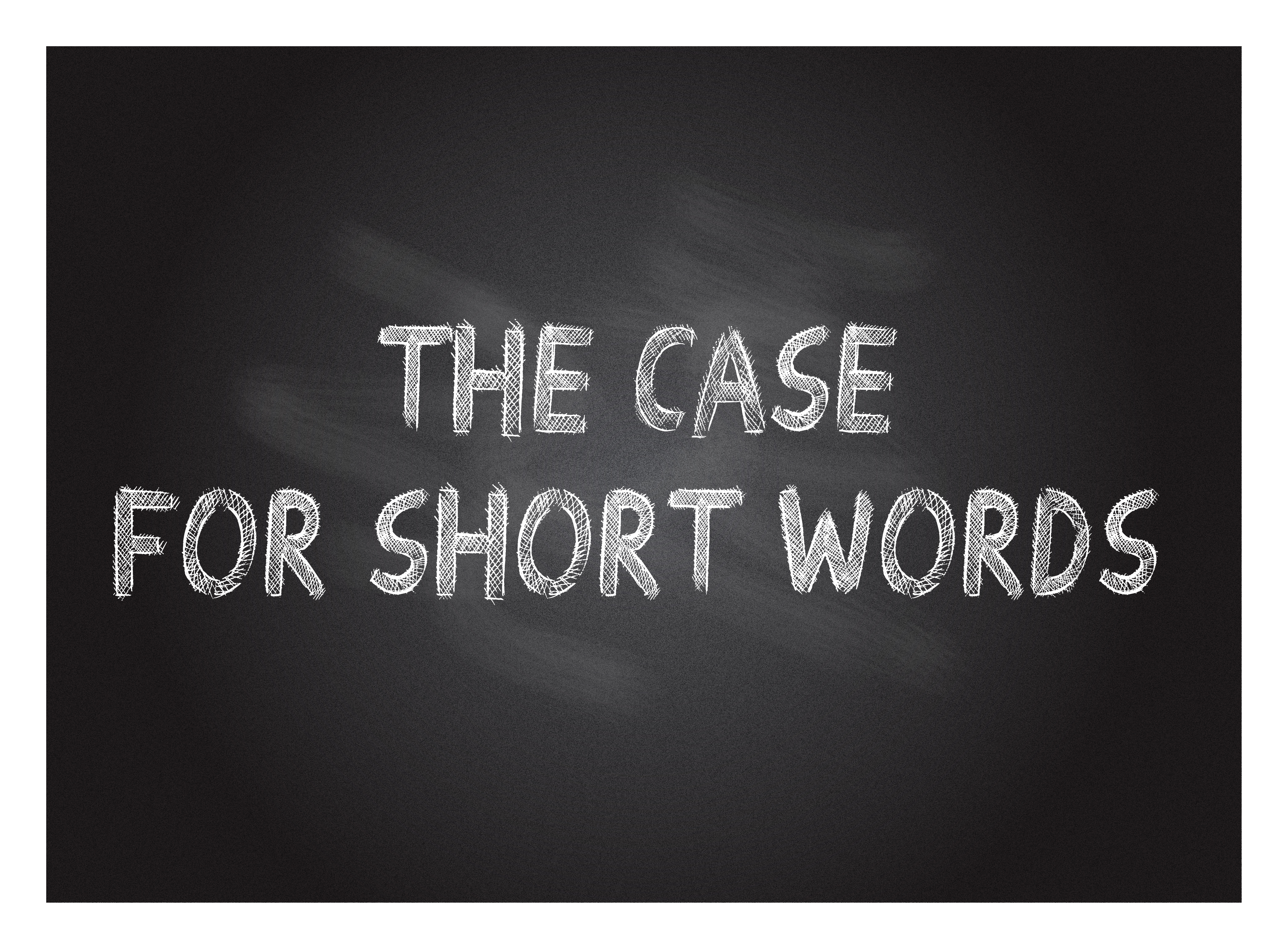Sagacious writers would be wise to eschew polysyllabic Latinate words. Or as Richard Lederer put it in The Miracle of Language, (Pocket Books, 1992):
“When you speak and write, no law says you have to use big words. Short words are as good as long ones, and short, old words like sun and grass and home are best of all. A lot of small words, more than you might think, can meet your needs with a strength, grace and charm that large words lack.
Big words can make the way dark for those who hear what you say and read what you write. They add fat to your prose. Small words are the ones we seem to have known from birth. They are like the hearth fire that warms the home, and they cast a clear light on big things: night and day, love and hate, war and peace, life and death.
Short words are bright, like sparks that glow in the night; sharp like the blade of a knife; hot like salt tears that scald the cheek; quick like moths that flit from flame to flame; and terse like the dart and sting of a bee.
If a long word says just what you want, do not fear to use it. But know that our tongue is rich in crisp, brisk, swift, short words. Make them the spine and the heart of what you speak and write. Like fast friends, they will not let you down.”
Lederer wrote the title and the above four paragraphs using only single syllables. His words are easy to read and his point is clear. How does your writing compare?
- Problem-solving produces an emotional benefit, not a financial one - March 18, 2022
- Innovation is about Solving Mysteries, not Puzzles - September 7, 2021
- Overcoming That’s the way we’ve always done it - August 3, 2021





